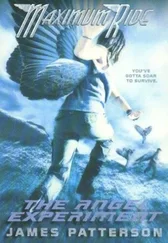Yukio Mishima - The Decay Of The Angel
Здесь есть возможность читать онлайн «Yukio Mishima - The Decay Of The Angel» весь текст электронной книги совершенно бесплатно (целиком полную версию без сокращений). В некоторых случаях можно слушать аудио, скачать через торрент в формате fb2 и присутствует краткое содержание. Год выпуска: 2010, Издательство: CCV Digital, Жанр: Старинная литература, на английском языке. Описание произведения, (предисловие) а так же отзывы посетителей доступны на портале библиотеки ЛибКат.
- Название:The Decay Of The Angel
- Автор:
- Издательство:CCV Digital
- Жанр:
- Год:2010
- ISBN:нет данных
- Рейтинг книги:5 / 5. Голосов: 1
-
Избранное:Добавить в избранное
- Отзывы:
-
Ваша оценка:
- 100
- 1
- 2
- 3
- 4
- 5
The Decay Of The Angel: краткое содержание, описание и аннотация
Предлагаем к чтению аннотацию, описание, краткое содержание или предисловие (зависит от того, что написал сам автор книги «The Decay Of The Angel»). Если вы не нашли необходимую информацию о книге — напишите в комментариях, мы постараемся отыскать её.
The Decay Of The Angel — читать онлайн бесплатно полную книгу (весь текст) целиком
Ниже представлен текст книги, разбитый по страницам. Система сохранения места последней прочитанной страницы, позволяет с удобством читать онлайн бесплатно книгу «The Decay Of The Angel», без необходимости каждый раз заново искать на чём Вы остановились. Поставьте закладку, и сможете в любой момент перейти на страницу, на которой закончили чтение.
Интервал:
Закладка:
Honda surrendered. They were beginning to attract a crowd. The cameraman came running up with a tripod and a red velvet cloth. As Honda dodged behind the dummy to avoid curious eyes his face appeared at the aperture. The crowd laughed, the diminutive cameraman laughed, and, though it seemed not entirely appropriate that Jirōchō should be laughing, Honda laughed too. Keiko tugged at his sleeve and took his place. Jirōchō had changed sex, and so had Ochō. The merriment was louder. Honda was drunk. He had known much of peep holes, but he had not had the experience of mounting a guillotine for the pleasure of boisterous masses.
The cameraman took rather a long time with his lens, perhaps because he had become a cynosure.
“Quiet, please.” The crowd was quiet.
Honda’s austere face protruded from the low-slung hole over the yellow plaid. Stooped, hips thrust out, he had taken up his pose at the peep hole in Ninooka. Behind the scene of these humiliating antics a subtle quick change took place as, indifferent to the crowd’s laughter, Honda confirmed that his whole world hung on the act of observing. He resumed this role, and the viewers became the viewed.
There was a sea, there was a great pine, its trunk roped off: the pine of the heavenly robe. The gentle, sandy slopes leading up to it thronged with spectators. Under the cloudy sky the several colors of their dress were uniformly somber, the wind in their hair made them look like a rotting upturned pine. There were clusters of people, there were couples off by themselves; and the great white eye of the sky crushed down upon them. And in the wall that was their foremost rank laughter was forbidden. They gazed at Honda with a stony blankness.
Women in kimono, shopping bags in their hands, middle-aged men in badly cut suits, boys in green-checkered shirts and plump-legged girls in blue miniskirts, children, old men, Honda saw them gazing at their own death. They were waiting for something, some occurrence so amusing that it must have its own grandeur. Lips were relaxed in good-natured smiles. Eyes were aglow with a naked bestiality.
“Quiet!” The cameraman raised his hand.
Keiko promptly withdrew her head from the hole. She stood before the multitude stately as a knight commander. Jirōchō, shaking her head, had become a person in serpentine pantaloons and a black sombrero. The crowd clapped. Keiko calmly wrote down her address for the cameraman. Several young persons, having decided that she was a famous actress from an earlier day, came up for her autograph.
Honda was exhausted by the time they reached the pine.
It was a giant pine on the point of death, spreading its arms in several directions like an octopus. Rents in the trunk had been filled with cement. People disported themselves around a tree that lacked even a proper supply of needles.
“Do you suppose the angel was in a swimming suit?”
“Is it a he-pine? Is that why the woman picked it?”
“She couldn’t reach the top.”
“Not much of a pine, when you get a good look at it.”
“But isn’t it nice they’ve managed to keep it alive. Just feel the sea wind.”
And indeed the pine leaned more aggressively to sea than a sea-trained pine should have, and the sea scars on its trunk were numberless as on a beached hulk. Toward the sea from the marble enclosure a pair of binoculars stood perched on a fresh vermilion bipod like a tropical bird. The Izu Peninsula loomed whitely beyond. A large cargo ship was passing. As if the sea had set out its wares for sale, a circle of driftwood and empty bottles and seaweed marked the high tide.
“Well, there you have it, the spot where the angel danced the heavenly dance to get back her feathered robe. There they all are getting their pictures taken again. That’s the way to do it. Don’t even look at the pine, just get your picture taken. Do you suppose they think it makes so much difference that they should be at a spot where something remarkable happened and stay long enough to get a shutter clicked in their faces?”
“You take it too seriously.” Keiko sat down on a stone bench and lighted a cigarette. “It’s beautiful. I’m not in the least disappointed. It may be dirty and the tree may be about to die, but it has a spell. If it were all pretty and dreamy the way it is in the play, then it would be a lie. The naturalness is very Japanese. I’m glad we came.” So Keiko seized the lead.
She enjoyed everything. That was her queenly prerogative.
In the vulgarity, as heavy and all-pervasive as a sultry sand-laden wind during the summer rains, she happily, gaily saw her sights, and she took Honda with her. On their return they looked in on the Mio Shrine. At the eaves of the sanctuary, on a rough framed board, was a votive painting in low relief of a newly built passenger ship. Sending out its wake over a blue sea, it seemed exactly right for a harbor shrine. Against the rear wall of the sanctuary was a large fan-shaped board on which was carved the cast for a Nō performance. It had been given six years before in the Dance Pavilion.
“A ladies’ day. Kamiuta, Takasago, Yashima , and then Robe of Feathers .” Keiko was impressed.
In the aftermath of the excitement she picked up and ate a cherry from under one of the trees that lined the path.
“See what I’m doing. I’m inviting death.”
His steps somewhat uncertain, Honda began to regret that vanity had kept him from bringing his stick. Panting and gasping, he had fallen behind when Keiko called out the warning.
Low on the rope that joined the trunks of the trees, numbers of identical signs waved in the breeze.
“Danger. Poisonous insecticides. Do not pick or eat.”
The branches, heavy with fruit from faint pink to blood red, were clustered with little knots of paper that carried prayers and petitions. Some of the cherries had been picked to bare seeds by the birds. Honda suspected that the signs were empty threats. And he knew that a small dose of poison was not enough to carry off Keiko.
10
 WAS THERE nothing more to see, was there nothing more to see, asked Keiko. Though exhausted, Honda ordered the driver to go back to Shizuoka by way of Mount Kuno. They stopped before the signal station Honda had seen some days earlier.
WAS THERE nothing more to see, was there nothing more to see, asked Keiko. Though exhausted, Honda ordered the driver to go back to Shizuoka by way of Mount Kuno. They stopped before the signal station Honda had seen some days earlier.
“Doesn’t it strike you as a rather interesting building?” Honda looked up from the profusion of portulaca at the stone base.
“I think I see a pair of binoculars. What’s it for?”
“It keeps watch on ship movements. Shall we look inside?”
Though curious, neither had quite the courage to knock.
They had climbed the stone steps that encircled the base and were at the foot of the iron stairway when a girl brushed past them with a clanging of iron, so near a miss that one of them called out a warning. Kicking up her skirts like a yellow tornado, she passed so quickly that they did not see her face; but she left all the same an impression as of a fleeting distillation of ugliness.
It was not that she had a bad eye or an objectionable scar. It was just that a hangnail of ugliness for an instant obstructed the view and went against all the careful, delicate ordering known as beauty. It was like the darkest of dark, fleshly memories rasping against the heart. But if one wished to view her in a more quotidian manner, she need be no more than a shy maiden returning from a tryst.
They climbed the stairs and paused at the door to catch their breath. It was half open. Honda pushed his way inside. The room seemed empty. He called up the narrow stairway to the second floor. Each time he called he was seized by a violent fit of coughing.
There was a creaking at the top of the stairs. “Yes?” A boy in an undershirt looked down.
Читать дальшеИнтервал:
Закладка:
Похожие книги на «The Decay Of The Angel»
Представляем Вашему вниманию похожие книги на «The Decay Of The Angel» списком для выбора. Мы отобрали схожую по названию и смыслу литературу в надежде предоставить читателям больше вариантов отыскать новые, интересные, ещё непрочитанные произведения.
Обсуждение, отзывы о книге «The Decay Of The Angel» и просто собственные мнения читателей. Оставьте ваши комментарии, напишите, что Вы думаете о произведении, его смысле или главных героях. Укажите что конкретно понравилось, а что нет, и почему Вы так считаете.











